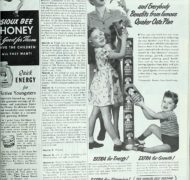Course Module in Church History - Lay Movements in the Marketplace
Seminary Curriculum / Produced by TOW Project
Compared with church leaders, lay people have a low profile in church history. In reality, however, the faith was shared along trade routes opened up by ordinary believers. The influence of missionaries was dependent on indigenous lay people opening up the way for them. Increasingly the history of mission is being re-written to reflect this reality.
It is interesting to trace the influence of British Quaker and Baptist business entrepreneurs in the 19th century. At that time the brightest and best Anglicans were pushed towards Oxford and Cambridge universities to train for church leadership. This avenue was denied non-conformists. However this also resulted in the brightest and best non-conformists going into business and integrating their faith and practice there. We see this in ventures like Cadbury Chocolates, Rowntree’s Biscuits, Boots Chemists and Thomas Cook Travel Agents. All of these businesses were successful enough to still exist today.
With regard to cultural transformation that has economic consequences, we can compare the influence of these movements:
- Benedict and Christian monasticism and their cultural and economic effects in the middle ages
- Wesley’s working class small group movement with its distinctive economic concerns
- the political and social influence of the fairly elite Clapham group
- the Moravians with their international business as mission ventures (before that sort of language was ever used)
- the powerful long term cultural changes brought about by 19th century Protestant missions agencies (now being analysed and documented by Robert Woodberry)
ASSIGNMENT
In the 18th and 19th centuries a number of Christian industrialists and bankers in Britain created businesses that in many cases are still thriving.
Read either James Walvin’s The Quakers: Money and Morals (London:John Murray, 1997), or Ian Bradley’s Enlightened Entrepreneurs: Business Ethics in Victorian Britain (Oxford, Lion Hudson, 2007). What do you learn from the stories related in your chosen book about the relationship between Christian faith, commercial success, and social responsibility? Identify and explain any particular personal challenges you experienced or lessons you learned from doing this study.











